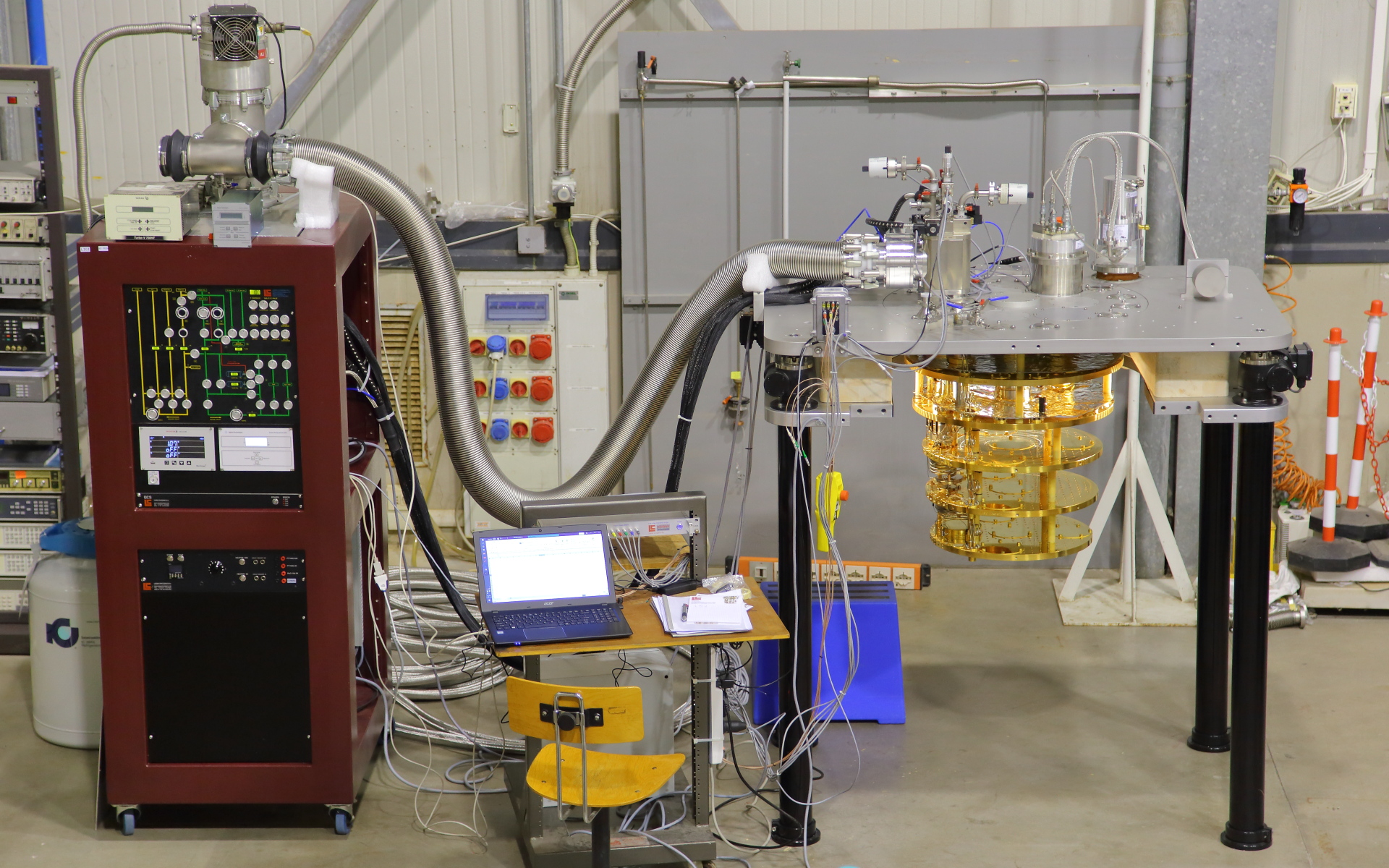| Karlsruhe Institute of Technology |
The Karlsruhe Institute of Technology (KIT) is a public research university and one of the largest research and education institutions in Germany. KIT is one of the leading universities in the Engineering and Natural Sciences in Europe, ranking sixth overall in citation impact. As part of the German Universities Excellence Initiative KIT was accredited with the excellence status in 2006. In the 2011, performance ranking of scientific papers, Karlsruhe ranked first in Germany and among the top ten universities in Europe in engineering and natural sciences.
The KIT partner group have internationally established expertise in the field of experimental low-temperature physics. During the last decade, the KIT group led by Prof. A. Ustinov (PI) have focused on the investigation of quantum-coherent dynamics of superconducting phase qubits, flux qubits and transmons. They were first to demonstrate frequency domain multiplexing readout of superconducting qubits back in 2011 -a crucial step towards scalable quantum architecture. Another visible and internationally established expertise of the KIT group is in coherent manipulation of microscopic two-level defects in superconducting qubits. More recent work relevant for this proposal is the first implementation of a quantum metamaterial using 20 superconducting flux qubits.
Website of the Karlsruhe Institute of Technology: http://www.phi.kit.edu/english/ustinov.php
Researches involved in the SUPERGALAX project
Prof. Dr. Alexey Ustinov (Gender male), a principal investigator for the group, has been in professor at KIT since 2008. His major field is experimental research on superconducting quantum circuits. Alexey Ustinov and his group have an internationally established expertise in the field of experimental low-temperature physics, nonlinear dynamics of Josephson junctions and arrays, high-frequency experiments with superconducting devices, studies of macroscopic quantum effects in these structures, and superconducting metamaterials. Alexey Ustinov has published over 300 papers in peer reviewed journals receiving over 5000 citations, and has an h-index of 39. The research of his group has been funded over the past years by the German Science Foundation (DFG), Volkswagen Foundation, various funding programs from USA, Russia, and the EU.
Description of significant infrastructure and major items of technical equipment, relevant to theSUPERGALAX project
The KIT partner group have internationally established expertise in the field of experimental low-temperature physics. During the last decade, the KIT group led by Prof. A. Ustinov (PI) have focused on the investigation of quantum-coherent dynamics of superconducting phase qubits, flux qubits and transmons. They were first to demonstrate frequency domain multiplexing readout of superconducting qubits back in 2011 -a crucial step towards scalable quantum architecture. Another visible and internationally established expertise of the KIT group is in coherent manipulation of microscopic two-level defects in superconducting qubits. More recent work relevant for this proposal is the first implementation of a quantum metamaterial using 20 superconducting flux qubits.
The research team will have all required infrastructure for the project. For sample fabrication, we will use state-of-the-art clean room facilities that are provided by the Nanostructure Service Laboratory (NSL) at KIT. The NSL provides equipment for the fabrication and characterization of nanostructures and operates an almost 210 m² clean room of ISO classes 6 and 7. The large pieces of equipment (EBL, FIB, SEM) are operated by skilled scientists and technicians who are also responsible for providing introductory and training courses, for supporting the users, equipment maintenance and NSL management. For a sustained operation a usage fee is charged to the users to cover the project-specific usage costs of clean room (monthly flat charge) and equipment (hourly rate). At NSL we have full access to 50 kV professional Jeol e-beam lithography system, multi-target Plassys evaporation chamber that is ideal for shadow evaporation of qubit Josephson junctions, wet benches, hot plates, reactive ion etching, etc. At Physikalisches Institut of KIT, we have available optical microscopes, bonding machines, resistance probe station to quickly verify the parameters of custom-fabricated samples, in conjunction with test measurements down to 300 mK temperature using two He3 cryostats. The group disposes of 4 dilution refrigerators which are all equipped with GHz-bandwidth signal lines, magnetic shielding and filters necessary for measurements of superconducting circuits operated in the coherent quantum regime at millikelvin temperatures. One of these cryostats (dry BlueFors BF-LD250) will accommodate measurements for this project. This dilution cryostat is already equipped with most of electronics to perform the described microwave domain experiments. Most of the high-frequency devices are readily available, including a vector network analyzer. The Physikalisches Institut of KIT maintains a mechanical workshop capable of modifying the existing and manufacturing new sample holders that we require for this project. The employed low-noise electronics for timed triggering of generators and data acquisition devices are custom-designed by the group together with the electronic workshop of the Physikalisches Institut. The institute’s helium liquefier station ensures the constant availability of the cryogenic liquids required to operate the dilution refrigerators.
